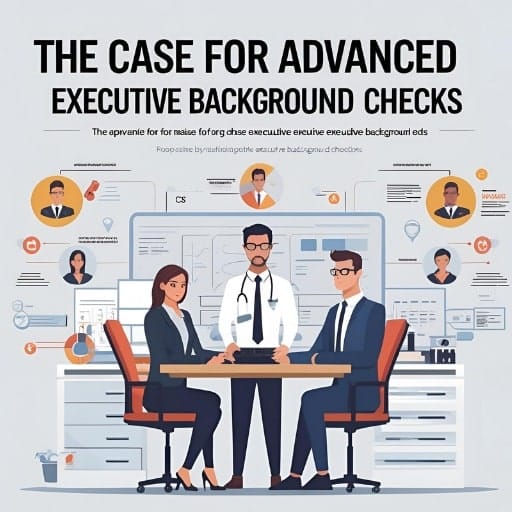Introduction: The Illusion of a Perfect Resume
In private equity, the stakes for executive hiring couldn’t be higher. Portfolio performance hinges on leadership execution—and a single misstep at the C-suite level can erode millions in enterprise value. Yet even experienced hiring teams can overlook “hidden” red flags lurking behind a polished resume and glowing references.
At JRG Partners, we’ve helped top PE firms course-correct after costly mis-hires—and more importantly, avoid them entirely through advanced executive due diligence.
The truth is: standard background checks and traditional vetting methods often fail to detect the kinds of issues that later derail performance. That’s why uncovering executive reputational risks in private equity requires a more forensic approach.
1. Why “Traditional” Vetting Isn’t Enough in PE
In corporate environments, hiring risk is cushioned by time and bureaucracy. In private equity, there’s little margin for error. Leaders are expected to deliver within the first 100 days and create exit-ready value in 3–5 years.
Yet, many PE firms still rely on:
- Standard reference calls with hand-picked contacts
- Resume reviews that emphasize credentials over outcomes
- Generic background checks limited to employment verification or legal history
This approach misses critical insight. Real risk often lies in patterns—repeated turnover, micromanagement, inflated achievements, or culture clashes—that don’t surface in formal documentation.
That’s why executive due diligence for private equity red flags must go beyond the basics.
2. The Anatomy of “Hidden” Red Flags
What constitutes a red flag depends on your investment thesis and leadership needs—but common culprits include:
| Type of Red Flag | What to Watch For | Potential Impact |
|---|---|---|
| Soft-skill gaps | Inability to manage teams, poor listening skills | High turnover, culture misfit |
| Resume inflation | Overstated metrics, vague achievements | Mismatched capabilities |
| Undisclosed exits | Quiet terminations or board disputes | Reputation damage, poor judgment |
| Questionable ethics | Past involvement in litigation, inflated valuations | Regulatory or reputational risk |
| Inconsistent performance | Hot/cold leadership record across roles | Inability to scale under pressure |
These issues don’t always show up in traditional references or interviews. You need tools for identifying hidden risks in private equity executive hires—before you hand over the reins.
3. The Case for Advanced Executive Background Checks

JRG Partners utilizes advanced executive background checks for PE firms that combine traditional reference-taking with deep-dive, investigative layers such as:
- Off-balance-sheet references from former colleagues, board members, or subordinates
- Media and litigation scans to uncover public domain risk
- Performance benchmarking against peers and industry standards
- Behavioral risk interviews that reveal patterns of dysfunction
- Social and reputational audits to detect cultural mismatches or controversial affiliations
This approach helps in vetting portfolio company leadership for undisclosed issues—the kind that don’t appear in a LinkedIn profile, but show up under pressure.
4. Reputation: The Unseen Risk Multiplier
In private equity, uncovering executive reputational risks is about more than just optics. If a CEO’s track record is tainted—publicly or privately—it can:
- Undermine board credibility
- Erode team morale
- Disrupt investor relations
- Trigger media or regulatory scrutiny
And in a world where every portfolio company is just one click away from scrutiny, reputation is currency.
JRG Partners helps clients protect that currency by validating not only what the candidate has done, but how they did it—and what that means for your brand.
5. Building a PE-Specific Due Diligence Framework
Private equity firms need a replicable, fast-moving framework for red flag detection that goes beyond gut feel. At JRG Partners, we recommend a structured model:
| Stage | Action |
|---|---|
| Profile Alignment | Tie leadership needs to 100-day plan and value creation goals |
| Investigative Referencing | Speak to 360° sources (peers, reports, board members) |
| Risk Trigger Review | Screen for past litigation, turnover frequency, resume gaps |
| Behavioral Deep-Dives | Test alignment with culture, pressure response, accountability |
| Reputation Audit | Conduct media scan, social audit, and online perception check |
Conclusion: A Better Bet on Leadership
In private equity, bad executive bets are too expensive to be left to chance. The good news? Hidden red flags are rarely invisible. They just require sharper tools, deeper inquiry, and the courage to look beyond the surface. Overcoming these leadership challenges is precisely why top-tier funds partner with a specialized private equity executive search firm to secure talent that drives value.
At JRG Partners, we specialize in executive due diligence for private equity red flags—giving you the full picture before the hire, not after the fallout. Because in the high-stakes world of PE-backed leadership, what you don’t know can hurt you. Let’s make sure your next hire is a value creator, not a hidden liability.


